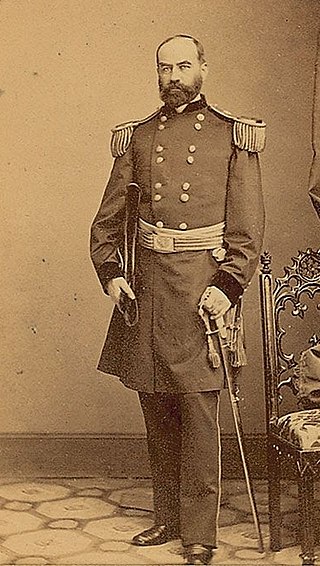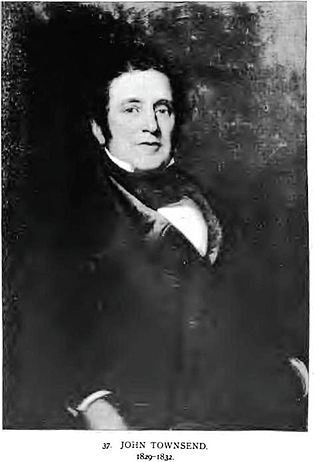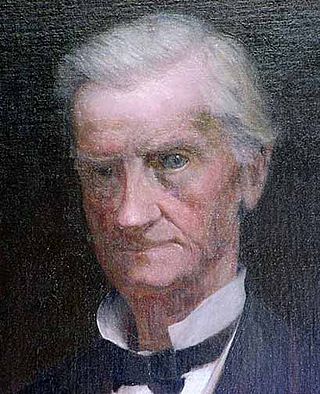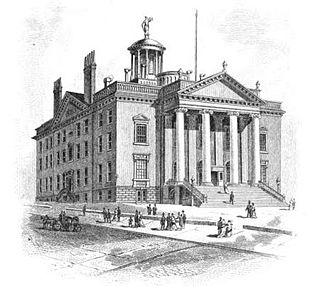
John Canfield Spencer was an American lawyer, politician, judge and United States Cabinet secretary in the administration of President John Tyler.

Major-General James Clinton was a Continental Army officer and politician who fought in the American Revolutionary War.

Henry Bell Van Rensselaer was an American military officer in the Union Army during the American Civil War, and a politician who served in the United States Congress as a Representative from the state of New York.

Gerrit Yates Lansing was an American lawyer and politician who served three terms as a U.S. Representative from New York from 1831 to 1837.
Pierre Lorillard III was the grandson of Pierre Abraham Lorillard, the founder of P. Lorillard and Company. Heir to a great tobacco fortune, Lorillard owned no less than 600,000 acres (2,400 km2) of undeveloped land in New York's Orange and Rockland counties, across the Hudson River and about an hour's train ride from the city. His son Pierre Lorillard IV developed Tuxedo Park on the family property in the 1880s.
Pierre Abraham Lorillard II or Peter Abraham Lorillard II, also known as Peter Lorillard, Jr., was an American tobacco manufacturer, industrialist, banker, businessman, and real estate tycoon.

John Townsend (1783–1854) was a prominent industrialist and politician in the Albany, New York, area. He was unanimously elected Mayor of Albany three times and served as the 37th mayor of the city.

George William Clinton was a New York lawyer, politician, judge, author, and amateur naturalist. He served as mayor of Buffalo, New York from 1842 to 1843.

The 1819/1820 United States Senate election in New York was held on February 2, 1819, and January 8, 1820, by the New York State Legislature to elect a U.S. Senator to represent the State of New York in the United States Senate.

The 1821 United States Senate election in New York was held on February 6, 1821, by the New York State Legislature to elect a U.S. Senator to represent the State of New York in the United States Senate.

The 1825/1826 United States Senate election in New York was held on February 1, 1825, and January 14, 1826, by the New York State Legislature to elect a U.S. Senator to represent the State of New York in the United States Senate.

The 1827 United States Senate election in New York was held on February 6, 1827, by the New York State Legislature to elect a U.S. Senator to represent the State of New York in the United States Senate.

The 1829 United States Senate special election in New York was held on January 15, 1829, by the New York State Legislature to elect a U.S. Senator to represent the State of New York in the United States Senate.

Lorillard Suydam Spencer Sr. was president of Atlantic Aircraft and was prominent in Newport, Rhode Island society. He served as the military secretary to Charles Seymour Whitman, the New York Governor.

Katherine Emmons Force Spencer was an American real estate investor and socialite. She was a member of the zoning board for Newport, Rhode Island.

The 49th New York State Legislature, consisting of the New York State Senate and the New York State Assembly, met from January 3 to April 18, 1826, during the second year of DeWitt Clinton's second tenure as Governor of New York, in Albany.

Caroline Suydam Berryman Spencer was a New York City and Newport, Rhode Island, socialite and the editor of Illustrated American.
Louis Lasher Lorillard was a prominent American clubman.
Tunis Van Pelt Talmage was an American businessman and politician from New York.
William Hurlbut Force was an American merchant.













